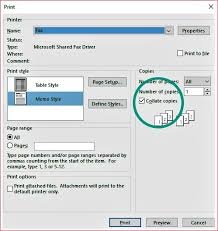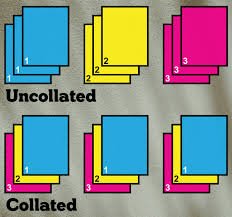The term “collate” is commonly used in various contexts, from organizing documents to compiling data for research and analysis. Whether in an office, academic setting, or business environment, the ability to collate information effectively is crucial for productivity and efficiency. This article delves into the meaning of collate, its importance, applications, and benefits in different fields.
Table of Contents
Collate: What Does It Mean?
The word “collate” originates from the Latin term “collatus,” which means “to bring together.” In modern usage, collate refers to the process of collecting, organizing, and assembling materials in a specific order for easy access and analysis. This could involve arranging documents in sequence, compiling datasets, or merging similar pieces of information for streamlined review.
Why Is It Important to Collate Information?
The ability to collate data and materials is essential in various settings. Some reasons why collate is important include:
- Enhanced Organization: Keeping materials well-structured ensures efficiency and quick retrieval.
- Improved Accuracy: Ensuring that data or documents are in order helps eliminate errors.
- Time-Saving: When you collate items, it becomes easier to access needed information, reducing time spent searching.
- Better Decision-Making: Well-organized information allows for better analysis, leading to informed decisions.
Applications of Collate in Different Fields

The process of collate applies to multiple areas, including education, business, research, and personal organization.
Collate in Education
Teachers and students frequently collate information for assignments, research papers, and reports. For example:
- Students collate notes and references when preparing essays or projects.
- Educators collate test results to assess student performance trends.
- Libraries collate books by subject, author, or genre for better accessibility.
Collate in Business
Businesses rely on the ability to collate data for reports, presentations, and strategic planning. Some examples include:
- Companies collate financial statements to analyze profitability.
- HR departments collate employee performance reviews for promotions or appraisals.
- Marketing teams collate customer feedback to improve products and services.
Collate in Research
Researchers and analysts must collate various sources of information for studies, surveys, and reports. Examples include:
- Scientists collate experimental data to draw conclusions.
- Journalists collate news reports to present well-rounded stories.
- Historians collate archival documents to create accurate historical narratives.
Collate in Personal Organization
On a personal level, individuals collate important documents, schedules, and information to stay organized. Some examples include:
- Collating medical records for easy reference.
- Collating recipes into a personal cookbook.
- Collating travel itineraries for a well-planned vacation.
How to Effectively Collate Information

While the process of collate may seem straightforward, using the right strategies can improve efficiency. Here are some steps to enhance your ability to collate information effectively:
- Identify Your Purpose: Determine why you need to collate information and what the intended outcome is.
- Gather Relevant Data: Collect all necessary documents, files, or sources required for collation.
- Establish a Logical Order: Arrange information in a way that makes sense, whether chronologically, alphabetically, or by category.
- Use Digital Tools: Utilize software and apps designed to help collate data efficiently.
- Review for Accuracy: Ensure all collected information is complete, accurate, and well-organized.
Digital Tools to Collate Information Efficiently
Technology has revolutionized how we collate information, making it faster and more convenient. Here are some useful digital tools:
- Microsoft Excel: Helps collate and analyze large datasets.
- Google Drive: Allows users to collate and store documents in a centralized location.
- Evernote: A great tool for collate notes and research materials.
- Trello: Ideal for project management and collate tasks in a visual format.
- Zotero: Used by researchers to collate academic references.
Collate in Printing and Document Management
One of the most common uses of collate is in printing and document management. The term “collated printing” refers to printing multiple copies of a document in sequential order. This feature is especially useful in:
- Printing booklets where pages must be collated correctly.
- Creating multi-page reports for distribution.
- Organizing presentation handouts in order.
Benefits of Collate in Everyday Tasks
The ability to collate is beneficial in everyday life. Some advantages include:
- Reduced Clutter: A well-collated system minimizes unnecessary piles of documents.
- Improved Productivity: Time spent searching for materials is significantly reduced.
- Easier Communication: Clearly collated information makes sharing and presenting ideas more effective.
- Better Archiving: Old records and files remain accessible when properly collated.
Common Mistakes to Avoid When Collating
While collate is a simple concept, people often make mistakes that hinder its effectiveness. Here are some pitfalls to avoid:
- Not Defining a System: Without a structured plan, information may become disorganized.
- Overloading Data: Trying to collate too much information at once can be overwhelming.
- Skipping the Review Process: Failing to check for accuracy can lead to errors.
- Ignoring Digital Tools: Manual collate methods can be time-consuming compared to digital solutions.
Also read Moped Everything You Need to Know About This Two Wheeler
Conclusion: The Power of Collate in Organization
Mastering the ability to collate information effectively can lead to improved efficiency, organization, and accuracy in various aspects of life. Whether for academic, professional, or personal use, knowing how to collate materials properly ensures better decision-making and productivity. By understanding its meaning, applications, and best practices, you can leverage the power of collate to enhance workflow and streamline tasks.
Embrace the concept of collate today and experience the benefits of a more structured and organized approach to information management.


